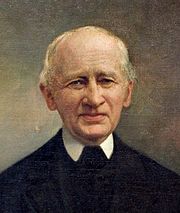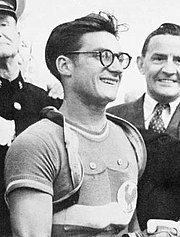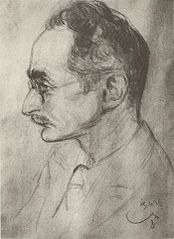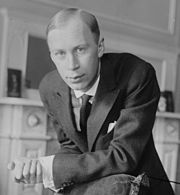Design
Design
Personality
Chart Properties
Your Cross represents the specific theme of your life. This cross embodies your unique potential & the lessons you're here to learn, providing a roadmap to fulfilling your life purpose.
We use the UTC birth time and date to do the calculations required to generate your Human Design chart.
Buy Tokens
Pay as you use, no expiry and no subscription required.Prompt Ideas
Get inspired with some epic prompt ideas.Johnny Cash's Biography
American musician, a country western singer and guitar player who is charismatic and rough-hewn. He shot out of obscurity in cotton-patch Arkansas to become one of the most enduring and popular figures of the mid-’50s folk scene. His music includes “Folsom Prison Blues” and “I Walk the Line.”
The fourth of seven children of Ray and Carrie Cash, his family was saved from the ravages of the Great Depression when the Cash family earned the right to a home, a barn, a mule and 20 acres by clearing land in the Dyess Colony in Arkansas. Cash listened to stories from his father of riding the rails and the hard times. “I always knew I was going to be a singer” he said, ” from the age of four.” His mother knew it too and managed singing lessons at 50 cents an hour, taking in washing to pay for them. Cash worked with the family in the fields picking cotton, but his younger sister Reba recalls, “It seemed like Daddy was always having to tell him to get with the work because he was staring off at a bird or an airplane or just leaning on his hoe.” In May 1944, Cash’s older brother Jack died of injuries cutting wood to earn $3 a day for the family. This event deepened the family’s religious faith.
After a brief job working in an auto factory in Michigan, Cash joined the U.S. Air Force. Stationed in Germany, he learned to pick a guitar. Under the GI Bill he went to broadcasting school in Memphis, Tennessee and got small singing jobs. In 1955, he got his first big exposure by appearing with Elvis Presley at the Louisiana Hayride.
In 1955, Cash joined up with two guitarists and their first single, “Cry! Cry! Cry!” became a regional hit. A year later, Cash had a country and crossover pop hit, “I Walk the Line” and became a regular on the Grand Ole Opry.
He became known as the Man in Black, always dressing in black. He has won numerous awards, had gold albums, played in numerous secondary TV parts, and was the host of his own network TV program, “The Johnny Cash Show” for three seasons. By 1971 he had become the largest-selling, most-famous country singer ever. His autobiography came out in 1975, “The Man in Black.” In 1986 his first spiritually driven novel entitled “Man in White” was published.
Cash married Vivian Liberto, a San Antonio girl who had been his pen pal, after leaving the Air Force. They had four daughters: Rosanne, also a country and western star, Kathy, Cindy and Tara. Cash went on the road touring where he was soon washing down uppers and downers with alcohol to survive the grueling pace. He had met June Carter of the Carter Family country singers early in his career and they became good friends. Through the years they developed a stronger relationship, and after he divorced Vivian in 1967, he married June Carter in 1968. They have one son, John Carter Cash, also a performer.
Cash finally won his legendary fight with drugs and alcohol in 1983 after the family confronted him and he checked himself in the Betty Ford Clinic for 44 days. The new sober Cash has become a doting father and grandfather with an uncanny ability to know when his family needs him. In 1992, he was inducted into the Rock and Roll Hall of Fame, the only singer to have also been inducted into the Country and Western Hall of Fame. He is known for his concern for the abused and underprivileged, including those in prisons. “I don’t see any good coming out of a prison. You put them in like animals and tear the souls and guts out of them, and let them out worse than they went in.” He continues to donate his services to Billy Graham’s crusades.
In 1997, at age 65, Cash was diagnosed with Shy-Drager syndrome, a degenerative nerve disease that can cause tremors and muscle stiffness. He was forced to cancel appearances in late October 1997, immediately following the promotion of his autobiography, “Cash: The Autobiography,” on “Good Morning America.” Around the same time, he revealed his condition at a concert in Flint, Michigan after he dropped his guitar pick and nearly fell over while trying to pick it up. Cash was hospitalized in November 1999 for pneumonia from which he fully recovered to enjoy the holidays with his wife in their Jamaican home. The illness returned in February 2001, taking him back into the hospital.
June Carter Cash, his wife and musical partner, died on 15 May 2003 in Nashville, Tennessee of complications from heart surgery which she underwent on 7 May 2003. Just a few months after the death of his wife, Johnny Cash died at age 71 on the morning of 12 September 2003 in Nashville of complications from diabetes.
Link to Wikipedia biography
Link to Astrodienst discussion forum
Johnny Cash
Your Cross represents the specific theme of your life. This cross embodies your unique potential & the lessons you're here to learn, providing a roadmap to fulfilling your life purpose.
We use the UTC birth time and date to do the calculations required to generate your Human Design chart.
Prompt Ideas
Get inspired with some epic prompt ideas.

Johann Gottfried Galle
2/4 Emotional - Solar Plexus Manifesting Generator

José Beyaert
5/1 Mental Projector

Paul Maas
3/5 Sacral Manifesting GeneratorLeif Olav Moen
5/1 Emotional - Solar Plexus Manifesting GeneratorGiorgio Turchi
1/3 Emotional - Solar Plexus Generator





